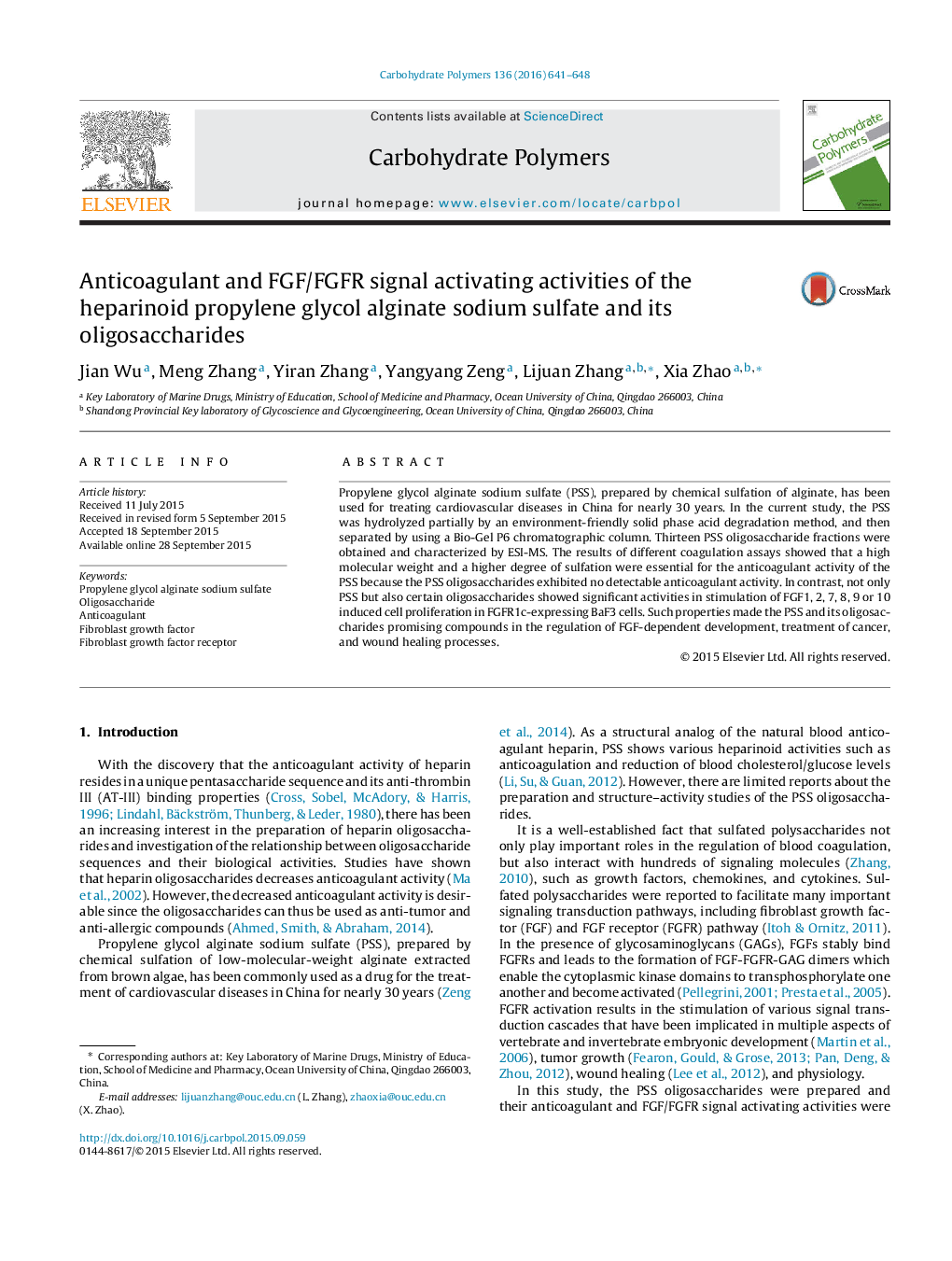| Article ID | Journal | Published Year | Pages | File Type |
|---|---|---|---|---|
| 7786649 | Carbohydrate Polymers | 2016 | 8 Pages |
Abstract
Propylene glycol alginate sodium sulfate (PSS), prepared by chemical sulfation of alginate, has been used for treating cardiovascular diseases in China for nearly 30 years. In the current study, the PSS was hydrolyzed partially by an environment-friendly solid phase acid degradation method, and then separated by using a Bio-Gel P6 chromatographic column. Thirteen PSS oligosaccharide fractions were obtained and characterized by ESI-MS. The results of different coagulation assays showed that a high molecular weight and a higher degree of sulfation were essential for the anticoagulant activity of the PSS because the PSS oligosaccharides exhibited no detectable anticoagulant activity. In contrast, not only PSS but also certain oligosaccharides showed significant activities in stimulation of FGF1, 2, 7, 8, 9 or 10 induced cell proliferation in FGFR1c-expressing BaF3 cells. Such properties made the PSS and its oligosaccharides promising compounds in the regulation of FGF-dependent development, treatment of cancer, and wound healing processes.
Keywords
Related Topics
Physical Sciences and Engineering
Chemistry
Organic Chemistry
Authors
Jian Wu, Meng Zhang, Yiran Zhang, Yangyang Zeng, Lijuan Zhang, Xia Zhao,
